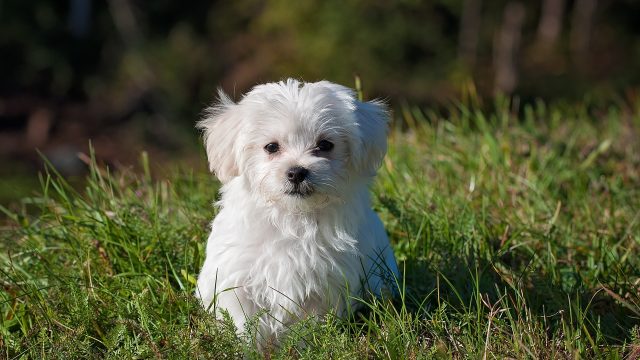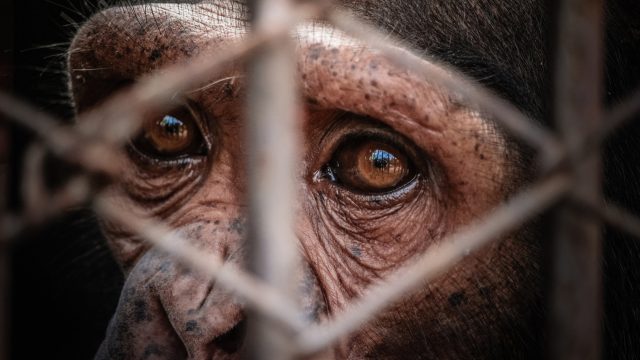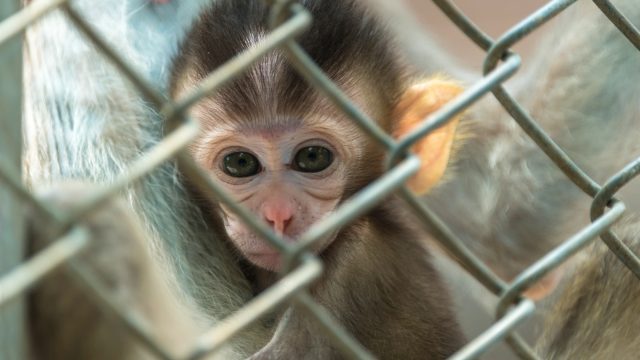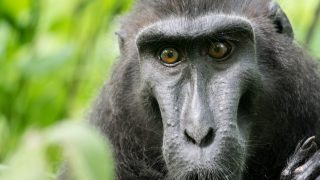
En Banc Review Requested in “Monkey Selfie” Copyright Case
By Nicole Pallotta, Academic Outreach Manager
SUMMARY: In response to a copyright infringement lawsuit brought by People for the Ethical Treatment of Animals (PETA) on behalf of a crested macaque, Naruto, as his “next friend,” the Ninth Circuit Court of Appeals affirmed the district court’s ruling that Naruto lacked statutory standing to sue under the federal Copyright Act. The Ninth Circuit also found that PETA did not have next friend status, but that Naruto had Article III standing under Cetacean Community v Bush[1], a case the panel acknowledged is binding precedent but made clear it believes was incorrectly decided.
A partial concurrence argued this case should never have been allowed to proceed to a discussion of Article III standing or the merits of the Copyright Act claim, because without next friend standing the court lacked jurisdiction to hear the case at all. The concurrence thus argues the appeal should be dismissed and the lower court’s judgment on the merits be vacated. Following this ruling, a Ninth Circuit judge requested the case be reheard en banc, which if granted would bring the case for review before eleven Ninth Circuit judges.
Case Background
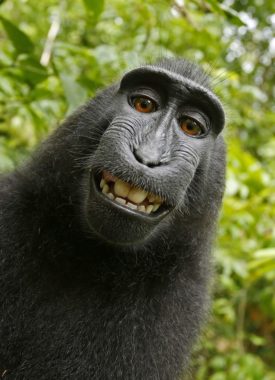 Are artworks created by animals subject to copyright, and if so, can animals themselves own that copyright (and sue to protect their rights in those artworks)?
Are artworks created by animals subject to copyright, and if so, can animals themselves own that copyright (and sue to protect their rights in those artworks)?
These questions underpinned the so-called “monkey selfie” case, a dispute over who holds the copyright to photos taken by a crested macaque using a human photographer’s camera.
A three-judge panel for the Ninth Circuit Court of Appeals issued a ruling on April 23, 2018, finding that the monkey’s claim had Article III standing [2] under the U.S Constitution but that he (“and all animals, since they are not human”) lacked statutory standing under the federal Copyright Act.
Until the sua sponte call for rehearing of the appeal en banc, this decision seemed to indicate a conclusion to the unusual case, which began three years ago when PETA filed a complaint for copyright infringement against British nature photographer David Slater on behalf of the Naruto, the monkey who took the now-famous photos of himself in 2011 using Slater’s unattended camera in an Indonesian jungle. PETA argued that the copyright to those “selfies” belonged to Naruto, not Slater.
PETA filed the complaint as Naruto’s “next friend,” a status that allows a third party to represent another in court, usually in cases involving minors or incapacitated individuals.
District Court Ruling and Statutory Standing
The District Court for the Northern District of California ruled that “animals like Naruto” lack standing under the Copyright Act. Although the Copyright Act does not address animals specifically, the court referred to Cetacean Community v. Bush (indicating if Congress intended for animals to have standing under a federal statute, it would plainly say so) and also deferred to the U.S. Copyright Office’s interpretation of the Act.
In December 2014, after this case had received extensive media coverage, the Copyright Office directly addressed the issue and stated it will “not register works produced by nature, animals, or plants” — pointedly including at the top of a list of examples of ineligible works: “a photograph taken by a monkey.” Thus, the district court found that:
Naruto is not an “author” within the meaning of the Copyright Act. Next Friends argue that this result is “antithetical” to the “tremendous [public] interest in animal art.” Perhaps. But that is an argument that should be made to Congress and the President, not to me. The issue for me is whether Next Friends have demonstrated that the Copyright Act confers standing upon Naruto. In light of the plain language of the Copyright Act, past judicial interpretations of the Act’s authorship requirement, and guidance from the Copyright Office, they have not.
Appeal and Joint Motion to Dismiss
PETA appealed, and after oral arguments before the Ninth Circuit Court of Appeals, PETA and Slater settled in September 2017, reaching an agreement that 25 percent of any proceeds from Slater’s sale of the photos would be donated to charities working to protect the dwindling habitat of crested macaques in Indonesia. As part of the settlement, both parties requested that the appeals court dismiss the appeal and vacate the earlier judgment.
The appeals court denied the joint motion and declined to vacate the lower court judgement, explaining that it was:
Preventing the parties from manipulating precedent in a way that suits their institutional preferences. As one of our colleagues once warned in a similar context, “courts must be particularly wary of abetting ‘strategic behavior’ on the part of institutional litigants whose continuing interest in the development in the law may transcend their immediate interest in the outcome of a particular case.”
Ninth Circuit Decision
On April 23, 2018, the Ninth Circuit issued an opinion affirming the district court’s ruling regarding statutory standing, but found that Naruto had satisfied the requirements for Article III standing (the lower court did not elaborate on this issue, finding that without statutory standing it was irrelevant[3]):
We must determine whether a monkey may sue humans, corporations, and companies for damages and injunctive relief arising from claims of copyright infringement. Our court’s precedent requires us to conclude that the monkey’s claim has standing under Article III of the United States Constitution. Nonetheless, we conclude that this monkey — and all animals, since they are not human — lacks statutory standing under the Copyright Act.
Next Friend Standing
The Ninth Circuit also found that PETA could not represent Naruto as “next friend” because it failed to meet the requirement of having a significant relationship with the monkey. (PETA did not claim to have such a relationship. Initially, a primatologist who did have a personal relationship with Naruto was pursuing his claims as a next friend, but she dropped out of the case on appeal.) In lengthy footnotes, the court also expressed skepticism that PETA was acting in Naruto’s best interests (another hallmark of next friend status) rather than its own. PETA dispute these criticisms at length in its response to the order regarding en banc review.
However, the opinion continued, even if PETA did allege and demonstrate a significant relationship with Naruto, this would not matter because animals cannot have next friend standing. While not ruling out that this right could be expanded, the court concluded that the legislature is the proper venue for any such expansion of standing, not the courts:
Here, we follow the Supreme Court’s lead in holding that “the scope of any federal doctrine of ‘next friend’ standing is no broader than what is permitted by the… statute.” … there is no such authorization for “next friend” lawsuits brought on behalf of animals. Our precedent on statutory interpretation should apply to court rules as well as statutes: if animals are to be accorded rights to sue, the provisions involved therefore should state such rights expressly… we decline to recognize the right of next friends to bring suit on behalf of animals, absent express authorization from Congress.
Article III Standing
The court found that PETA’s lack of next friend status did not destroy Naruto’s standing to sue, and that to conclude otherwise would conflict with the Ninth Circuit’s own precedent in Cetacean Community v. Bush. In that case, the court held that a group of cetaceans could demonstrate Article III standing through their self-appointed lawyer in a lawsuit about the detrimental effects of U.S. Navy sonar on “all the world’s whales, porpoises, and dolphins.”
In Cetacean, the court said, “the Ninth Circuit made clear that the ‘sole plaintiff in this case’ is the Cetaceans and did not discuss ‘next friend’ or third-party standing.” Because, under Cetacean, Naruto’s complaint “includes facts sufficient to establish Article III standing,” the court went on to consider Naruto’s statutory standing.
However, the court made known its displeasure at being bound by the precedent set in Cetacean:
Short of an intervening decision from the Supreme Court or from an en banc panel of this court… we cannot escape the proposition that animals have Article III standing to sue… While we believe Cetacean was incorrectly decided, it is binding circuit precedent that non-human animals enjoy constitutional standing to pursue claims in federal court…Although we must faithfully apply precedent, we are not restrained from pointing out, when we conclude after reasoned consideration, that a prior decision of the court needs reexamination. This is such a case. Animals have neither constitutional nor statutory standing… Other than Cetacean, no case has held that animals have constitutional standing to pursue claims in federal court.
In a partial concurrence, Judge N.R. Smith took issue with the majority’s conclusion that next friend standing was non-jurisdictional. In other words, when the court found PETA lacked next friend status, Judge Smith reasoned, it should have dismissed the case immediately and never proceeded to a discussion of Article III standing and the merits of Naruto’s statutory standing under the Copyright Act.
In asserting the claim that next friend status can never be used on behalf of animals, Judge Smith expressed skepticism that humans could ever faithfully interpret and represent an animal’s interests or know what she or he would want. In the case of owning copyrights, this may be a fair point. However, in cases of a wild animal desiring liberty (for example), we can be much more confident given the preponderance of scientific evidence of animal cognition, emotion, and sociality. Are nonhuman animals really so unknowable? Judge Smith seems to think so (emphasis in original):
Allowing next-friend standing on behalf of animals allows lawyers (as in Cetacean) and various interest groups (as here) to bring suit on behalf of those animals or objects with no means or manner to ensure the animals’ interests are truly being expressed or advanced…We have no idea whether animals or objects wish to own copyrights or open bank accounts to hold their royalties from sales of pictures. To some extent, as humans, we have a general understanding of the similar interests of other humans. In the habeas corpus context, we presume other humans desire liberty. Similarly, in actions on behalf of infants, for example, we presume the infant would want to retain ownership of the property she inherited. But the interests of animals? We are really asking what another species desires…Animal-next-friend standing is materially different from a competent person representing an incompetent person. We have millennia of experience understanding the interests and desire of humankind. This is not necessarily true for animals.
In its brief in response to the en banc request, PETA put forth a compelling rebuttal to this “sky will fall” reasoning, commonly used to argue that animals should never have standing:
The panel identifies a series of “policy” reasons why affording nonhuman animals standing to bring suit would result in a parade of horribles: “For example, if animals may sue, who may represent their interests? If animals have property rights, do they also have corresponding duties? How do we prevent people (or organizations, like PETA) from using animals to advance their human agendas?” But there is no reason why affording animals standing would create greater difficulties than affording standing to, for example, infants, entities, or objects. Each of these legal “persons” gives rise to representational questions that have been addressed by statutory and common law doctrines…Legislatures are capable of tackling these difficulties. Yet the panel suggests that they should be constitutionally prohibited from doing so.
En Banc Request
In an interesting twist, on May 25, 2018, a Ninth Circuit judge requested a vote of the full court to consider whether the published opinion should be reviewed by the Ninth Circuit en banc, a relatively rare occurrence that, if granted, means the case would be reheard by eleven randomly selected Ninth Circuit judges. The three-judge panel thus issued an order requesting the parties’ briefs regarding their positions on whether the appeal should be reheard en banc.
Both Slater and PETA argue that the Ninth Circuit should not take the case en banc to reconsider its prior holding in Cetacean that animals can have standing under Article III. And both disagree with the proposition that next friend status can never apply to animals. Thus, the former adversaries find themselves on the same page, at least on the issue of animal standing. From Slater’s brief:
Slater, a nature photographer based in Wales, did not choose to embark on a legal adventure in California regarding a photograph taken in an Indonesian jungle. But he dearly hopes that what will be the most exhaustive federal legal precedent on animal rights to date – a case that will forever bear his name – is one that holds open the idea of animal standing in United States federal courts.
The brief goes on to urge the court to not preclude the possibility of animal standing:
… Just as the Cetacean panel observed that it would be an “extraordinary step” if Congress were to grant statutory standing to animals, it would also be extraordinary for the judiciary to rule out animal standing as a constitutional matter. That would deny the political branches the option of granting animals standing (through suitable “next friend” representatives) to enforce laws enacted for their protection and very survival. The gravity of permanently closing the courtroom doors to animals is a matter of exceptional importance, warranting en banc consideration with full merits briefing and an opportunity for amicus curiae participation.
The issue of when and how animals may have standing is ever-evolving. The Animal Legal Defense Fund is currently representing a rescued horse, now named Justice, as the plaintiff in a case to recover costs for the specialized medical care he will need for the rest of his life as a result of severe neglect he suffered at the hands of his former owner. This novel lawsuit argues that animals have a right to sue their abusers in court.
UPDATE:
On August 31, 2018, the request to rehear this case en banc was denied.
Further Reading:
- Hwang, Jamie. “‘Monkey selfie’ case may hang around in 9th Circuit.” ABA Journal. June 1, 2018.
- District court ruling.
- Denial of joint motion to dismiss.
- Ninth Circuit decision.
- Response to en banc order by David Slater
- Response to en banc order by PETA.
Focus Area
How We Work
Related
-
Washington Governor Signs Animal Protection Bills into Law
The four laws will offer better protections for companion animals and keep wild animals from being exploited for entertainment in the stateMay 16, 2025 News -
Federal Judge Rules USDA Acted Unlawfully in Denying Petition to Improve the Psychological Well-Being of Primates Used in Research
On March 23, 2023, Judge Julie Rubin of the federal district court in Maryland issued a decision, ruling that the United States Department of Agriculture (USDA) acted unlawfully by denying a petition for rulemaking to improve the standard for the psychological well-being of primates in researchMarch 23, 2023 News -
Evidence Shows University of Wisconsin-Madison Illegally Censors Critics of Animal Testing
Animal Legal Defense Fund files motion for summary judgement with damning evidence against the universityMay 19, 2022 Press Release

